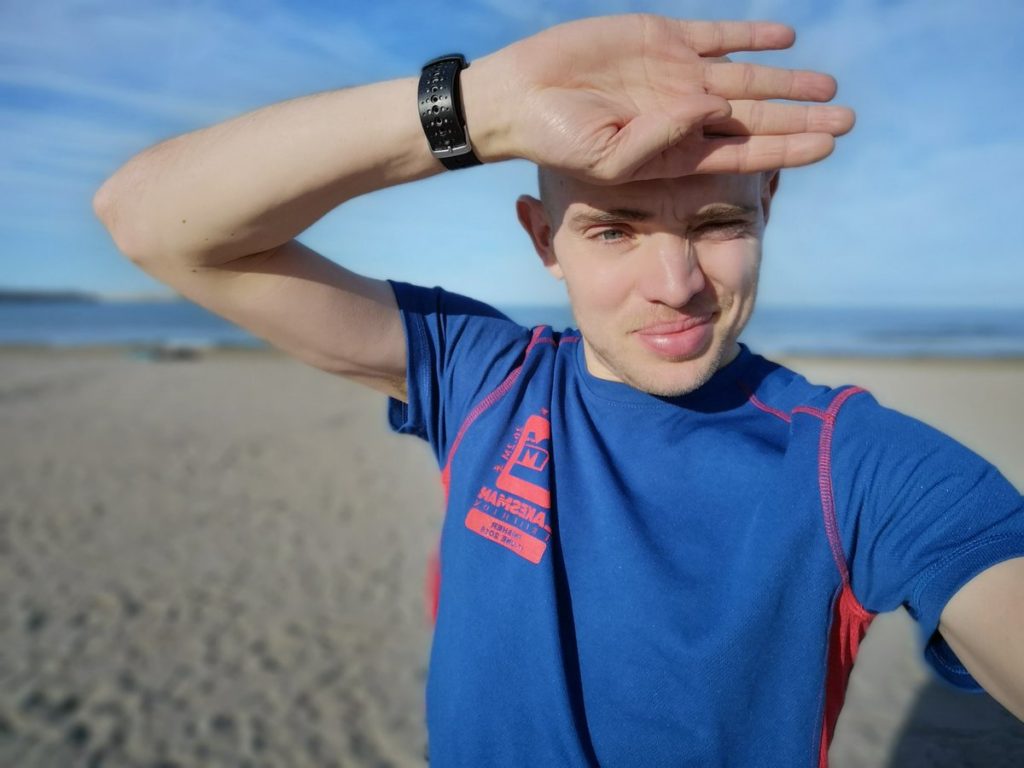Posted February 28th 2019
Mae’r cynnwys hwn ar gael yn Saesneg yn unig.
When I arrived, I was recovering from an injury and was unable to train. Surrounded by world-class Olympic athletes, such as Mo Farah, it was a very intimidating environment, and it was demoralising watching others return from training runs while I was resigned to the sun lounger.

While I was sitting around the pool enjoying the African sunshine, another runner in the camp asked me how much I weighed. He said that if could lose a few kilos, I could greatly improve my running. For some reason, whether it was because I was missing my friends and family, or the comforts of home, this comment triggered a light bulb moment. In the next three weeks, thoughts of weight loss and restrictive eating consumed me.
I returned home to Suffolk feeling like I had let everybody down after the fanfare of my departure, and I became obsessed with my weight. Initially, I would starve myself for long periods, sometimes even days at a time, despite the fact I had returned to fitness and was back running 80-100 miles per week.
From this unsustainable behaviour I developed bulimia, and this disordered eating continued for almost two years. Physically, my body weight dropped significantly and I felt permanently exhausted.
Naturally, this destructive behaviour affected my mood and my social life. I became very reclusive and I would make excuses not to see my friends in order to avoid social situations, especially those involving food, such as meals out, barbecues, weddings or birthdays.
I became very secretive in order to hide how much and when I had eaten, and why I would spend so much time in the bathroom. By this point I had an incredibly poor opinion of myself and my confidence was eroded to nothing.
No more secrets
The turning point was when I was experiencing toothache in December 2014. I went to my dentist, and after my appointment, he asked to speak to me in private. He asked if I was making myself sick because my front teeth had been eroded by 75% due to the stomach acid from vomiting. It was the first time I had ever been asked directly, and I had no choice but to confess to him. He informed me that if this behaviour continued, within six months I would lose my front teeth entirely.
I had been able to hide my weight loss with my running and my reclusiveness behind my dedication to training, but how could I hide being 26 years old with no front teeth? That was when I realised I had to stop and overcome my eating disorder.
Initially, I did not tell anyone out of fear and embarrassment, and the first few weeks were extremely challenging. While my family enjoyed a mountainous roast dinner on Christmas Day, I forced myself to eat a bowl of vegetable soup, which for me was quite a landmark in itself.
For the next few weeks, I was filled with immense guilt after every meal as I adjusted mentally and physically to keeping food down. Nine months later, I decided to come clean to my family, who were overwhelmingly supportive. I then told my friends and I was instantly inundated with positive messages from people I have not seen or spoken to in a number of years.

Four years later, I have now returned to my original healthy body weight, I am fitter and stronger, and I have a much better relationship with food. My running performances have improved greatly, which totally undermined my theory for losing weight in the first place.
Like a lot of men, I initially refused to accept I had a mental illness. I felt it was something I could stop at any time, even though I had tried and failed on numerous occasions.
I was embarrassed by my actions and feared what people would say, so I decided to suffer in silence for so long. However, I realise now that eating disorders affect thousands of people, and just like any other illness, they are very difficult to beat alone.
To continue to raise awareness, particularly amongst runners who believe the myth that “lighter equals faster” I have launched the #TRAINBRAVE campaign to highlight the risks, and help educate athletes, coaches and sports clubs about the warning signs, and how they can support those affected.
You can follow Tom Fairbrother’s progress on Twitter @fairboyruns,
Support the #TRAINBRAVE campaign @train_brave and trainbrave.org
Resources
- More information about eating disorders from our website
- Beat eating disorders – a charity offering information and support
- Read more from this year’s #EDAW19 blogs – Finding our own meaning of health and happiness and Dump the scales
